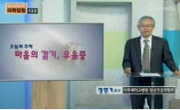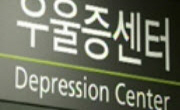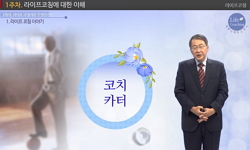Objectives : As a part of plan to develop evidence-based treatment guidelines for depression that is more suitable for Korean situation, we investigate the present status and client's requirements for non-pharmacological treatment of depression in Kor...
http://chineseinput.net/에서 pinyin(병음)방식으로 중국어를 변환할 수 있습니다.
변환된 중국어를 복사하여 사용하시면 됩니다.
- 中文 을 입력하시려면 zhongwen을 입력하시고 space를누르시면됩니다.
- 北京 을 입력하시려면 beijing을 입력하시고 space를 누르시면 됩니다.

한국에서 우울증의 비약물학적 치료의 현황과 요구도 = The Current Status and Requirements for Non-pharmacological Treatment of Depression in Korea
한글로보기https://www.riss.kr/link?id=A101640930
-
저자
오홍석 ; 이해원 ; 박용천 ; Oh, Hong Seok ; Lee, Hae Won ; Park, Yong Chon
- 발행기관
- 학술지명
- 권호사항
-
발행연도
2007
-
작성언어
Korean
- 주제어
-
등재정보
KCI등재
-
자료형태
학술저널
-
수록면
21-27(7쪽)
-
KCI 피인용횟수
5
- 제공처
-
0
상세조회 -
0
다운로드
부가정보
다국어 초록 (Multilingual Abstract)
Objectives : As a part of plan to develop evidence-based treatment guidelines for depression that is more suitable for Korean situation, we investigate the present status and client's requirements for non-pharmacological treatment of depression in Korean clinical situation. Methods : Subjects were patients with depression in 12 university hospitals which are located in metropolises in Korea. We analyzed the records from questionnaires about current clinical status and requirements for the non-pharmacological treatment of depression in Korea. Results : 50.8% of the subjects have experienced non-pharmacological treatments for their depression. The preference of non-pharmacological treatment method of depression is exercise/interesting activity, counseling by psychiatrists and psychotherapy, and the best effective treatment method is psychotherapy (Es=4.36). Actually, the mean consultation time by psychiatrist is $11.31{\pm}7.16$ min, and the appropriate consultation time for client's situation is $18.39{\pm}8.95$ min. During consultation, patients' satisfaction measurement for psychiatrist's explanation about pharmacological treatment is $64.17{\pm}27.11$, and satisfaction measurement for psychiatrist's counseling for their depression about personal problems, resent stress, interpersonal relationship is $61.66{\pm}26.63$. Conclusion : In Korea, many psychiatrists offered biologically oriented treatment to their patients with depression, and patients' satisfaction measurement about consultation by psychiatrists is low. Many patients wanted to combined pharmacological and non-pharmacological treatment for their depression, and aspired to information about complementary and self-help treatment methods. It is necessary to develop non-pharmacological treatment guideline for depression which reflect the clinical situation in Korea and meet Korean patients' need.
참고문헌 (Reference)
1 M, Whybrow PC, "World Federation of Societies of Biological Psychiatry (WFSBP) Guidelines for Biological Treatment of Unipolar Depressive Disorders, Part 2: Maintenance treatment of major depressive disorder and treatment of chronic depressive disorders and subthreshold depressions." 3 (3): 69-86, 2002
2 Bauer M, "World Federation of Societies of Biological Psychiatry (WFSBP) Guidelines for Biological Treatment of Unipolar Depressive Disorders, Part 1: Acute and continuation treatment of major depressive disorder." 3 (3): 5-43, 2002
3 Smith R, "Where is the wisdom? The poverty of medical evidence" 303 : 798-799, 1991
4 Thachil AF, "The evidence base of complementary and alternative therapies in depression." 97 : 23-35, 2007
5 Crismon ML, "The Texas Medication Algorithm Project: report of the Texas Consensus Conference Panel on Medication Treatment of Major Depressive Disorder." 60 (60): 142-56, 1999
6 Goldberg D, "The "NICE guideline" on the treatment of depression." 15 : 11-15, 2006
7 Jorm AF, "Public beliefs about the helpfulness of interventions for depression: effects on actions taken when experiencing anxiety and depression symptoms." 34 : 619-626, 2000
8 Sackett DL, "On the need for evidence-based medicine." 17 : 330-334, 1995
9 National Collaborating Center for Mental Health, "Management of Depression in primary and secondary care" London: National Institute for Clinical Excellence 2004
10 Evidence Based Medicine Working Group, "Evidence-based medicine:a new approach to teaching the practice of medicine" 268 : 2420-2425, 1992
1 M, Whybrow PC, "World Federation of Societies of Biological Psychiatry (WFSBP) Guidelines for Biological Treatment of Unipolar Depressive Disorders, Part 2: Maintenance treatment of major depressive disorder and treatment of chronic depressive disorders and subthreshold depressions." 3 (3): 69-86, 2002
2 Bauer M, "World Federation of Societies of Biological Psychiatry (WFSBP) Guidelines for Biological Treatment of Unipolar Depressive Disorders, Part 1: Acute and continuation treatment of major depressive disorder." 3 (3): 5-43, 2002
3 Smith R, "Where is the wisdom? The poverty of medical evidence" 303 : 798-799, 1991
4 Thachil AF, "The evidence base of complementary and alternative therapies in depression." 97 : 23-35, 2007
5 Crismon ML, "The Texas Medication Algorithm Project: report of the Texas Consensus Conference Panel on Medication Treatment of Major Depressive Disorder." 60 (60): 142-56, 1999
6 Goldberg D, "The "NICE guideline" on the treatment of depression." 15 : 11-15, 2006
7 Jorm AF, "Public beliefs about the helpfulness of interventions for depression: effects on actions taken when experiencing anxiety and depression symptoms." 34 : 619-626, 2000
8 Sackett DL, "On the need for evidence-based medicine." 17 : 330-334, 1995
9 National Collaborating Center for Mental Health, "Management of Depression in primary and secondary care" London: National Institute for Clinical Excellence 2004
10 Evidence Based Medicine Working Group, "Evidence-based medicine:a new approach to teaching the practice of medicine" 268 : 2420-2425, 1992
11 Davidoff F, "Evidence-based medicine: why all the fuss?" 122 : 127-, 1995
12 Sackett DL, "Evidence-based medicine, how to practice and teach ebm." Churchill Livingstone 2000
13 Jorm AF, "Effectiveness of complementary and self-help treatments for depression." 20 : 84-96, 2002
14 Canadian Psychiatric Association, "Canadian Network for Mood and Anxiety Treatments (CANMAT): Clinical guidelines for the treatment of depressive disorders." 46 : 5S-90S, 2001
15 Cuijpers P, "Bibliotherapy in unipolar depression: a meta-analysis." 28 : 139-147, 1997
16 Royal Australian and New Zealand College of Psychiatrists Clinical Practice Guidelines Team for Depression., "Australian and New Zealand clinical practice guidelines for the treatment of depression." 38 : 389-407, 2004
17 Yoon CH, "Attitude toward help-seeking behavior" 30 : 1091-1110, 1991
18 Jorm AF, ""Mental health literacy": a survey of the public's ability to recognize mental disorders and their beliefs about the effectiveness of treatment." 166 : 182-186, 1997
동일학술지(권/호) 다른 논문
-
Quetiapine 치료 중 발생한 무증상 갑상선 기능저하증 1례
- 대한생물정신의학회
- 나경세
- 2007
- KCI등재
-
외상성 뇌손상 환자에서 주의력이 실행기능에 미치는 영향 : 단계 모형의 검증
- 대한생물정신의학회
- 정한용
- 2007
- KCI등재
-
- 대한생물정신의학회
- 배승민
- 2007
- KCI등재
-
알쯔하이머병에서 행동심리증상과 환자 및 부양자의 삶의 질의 관계
- 대한생물정신의학회
- 김성완
- 2007
- KCI등재
분석정보
인용정보 인용지수 설명보기
학술지 이력
| 연월일 | 이력구분 | 이력상세 | 등재구분 |
|---|---|---|---|
| 2026 | 평가예정 | 재인증평가 신청대상 (재인증) | |
| 2020-01-01 | 평가 | 등재학술지 유지 (재인증) |  |
| 2017-01-01 | 평가 | 등재학술지 유지 (계속평가) |  |
| 2013-01-01 | 평가 | 등재 1차 FAIL (등재유지) |  |
| 2010-01-01 | 평가 | 등재학술지 유지 (등재유지) |  |
| 2007-01-01 | 평가 | 등재학술지 선정 (등재후보2차) |  |
| 2006-01-01 | 평가 | 등재후보 1차 PASS (등재후보1차) |  |
| 2004-01-01 | 평가 | 등재후보학술지 선정 (신규평가) |  |
학술지 인용정보
| 기준연도 | WOS-KCI 통합IF(2년) | KCIF(2년) | KCIF(3년) |
|---|---|---|---|
| 2016 | 0.19 | 0.19 | 0.19 |
| KCIF(4년) | KCIF(5년) | 중심성지수(3년) | 즉시성지수 |
| 0.14 | 0.15 | 0.475 | 0 |




 ScienceON
ScienceON






